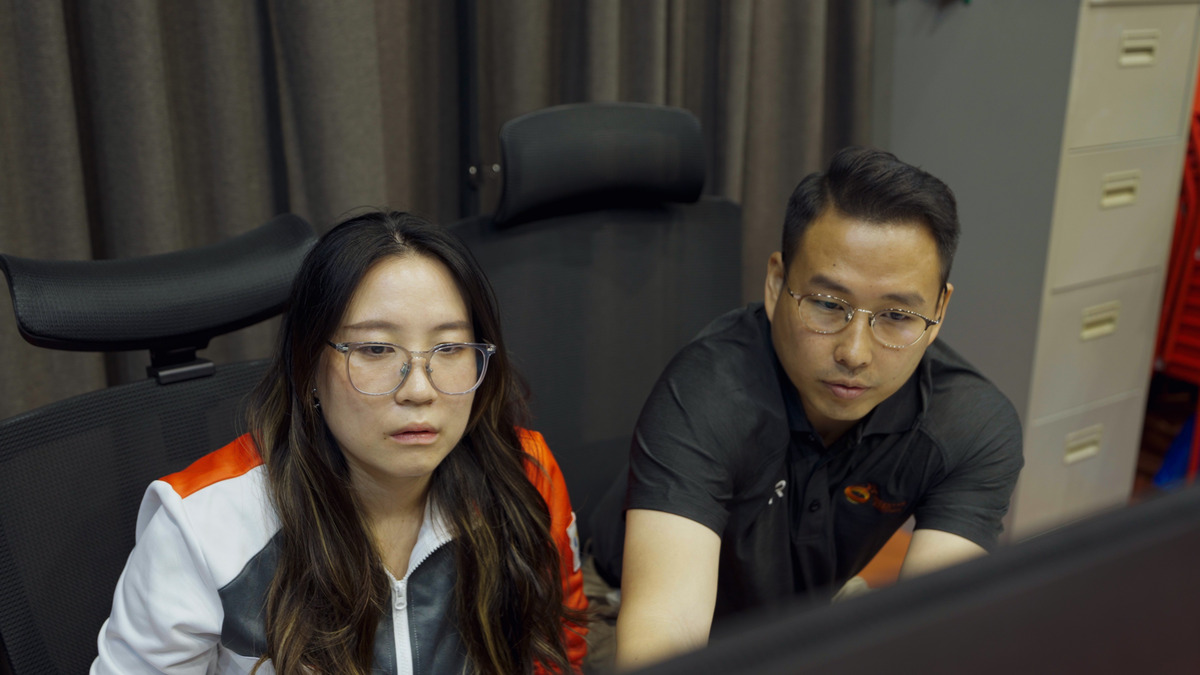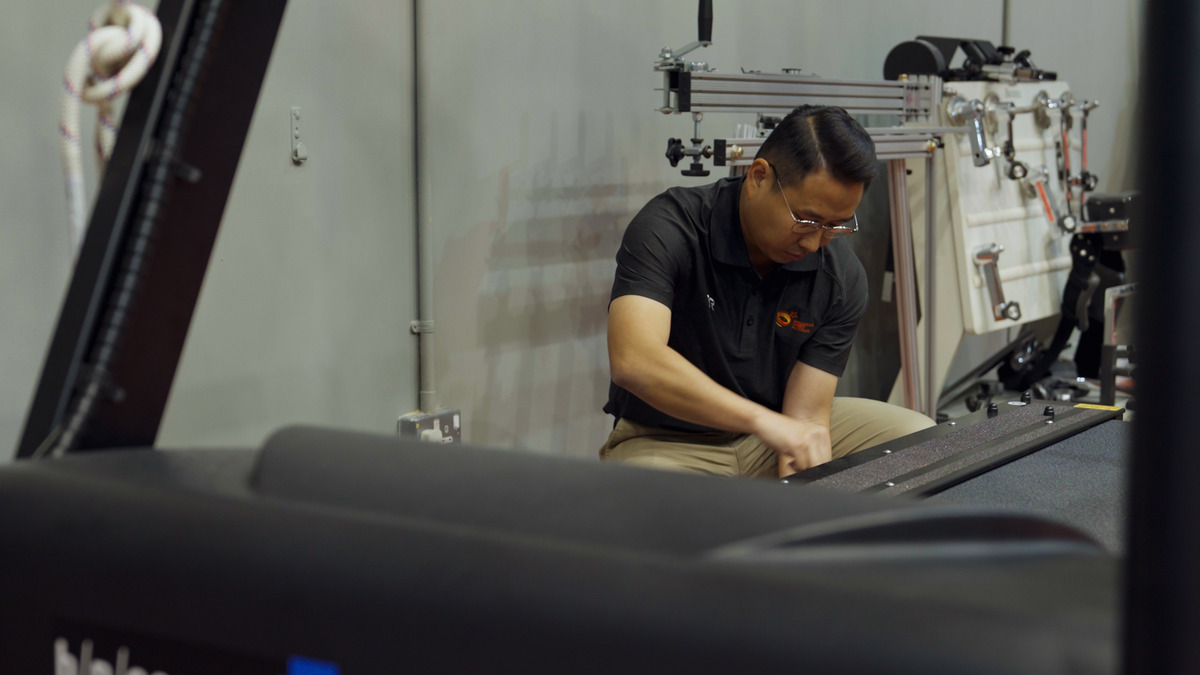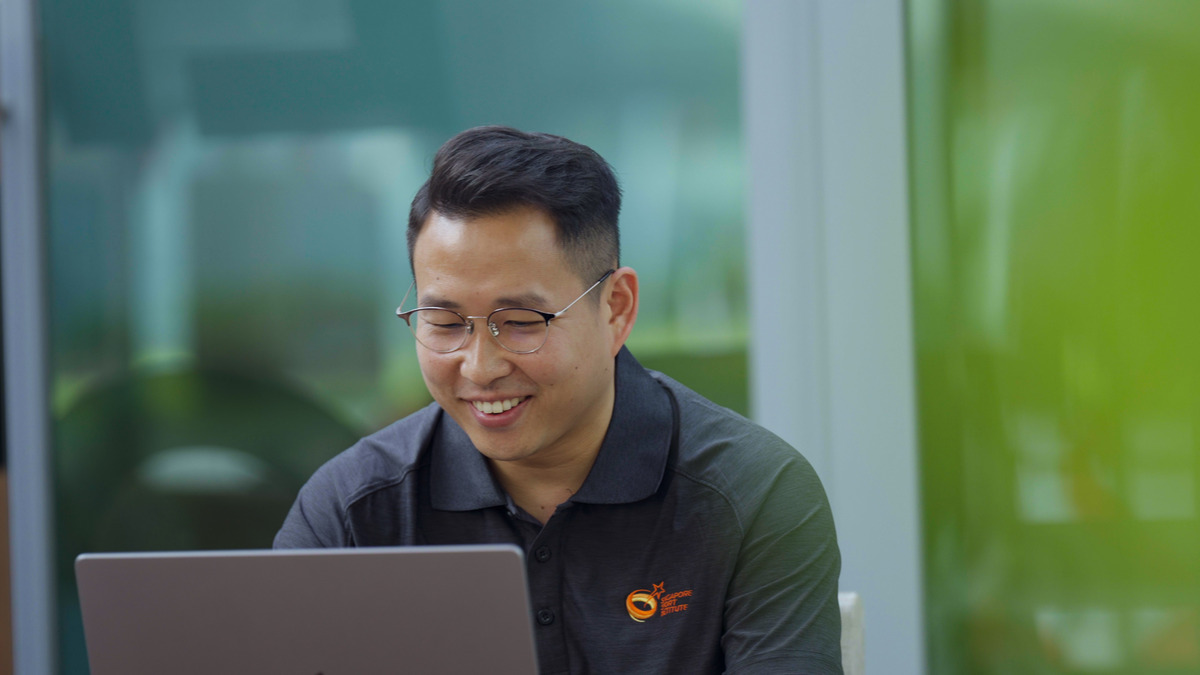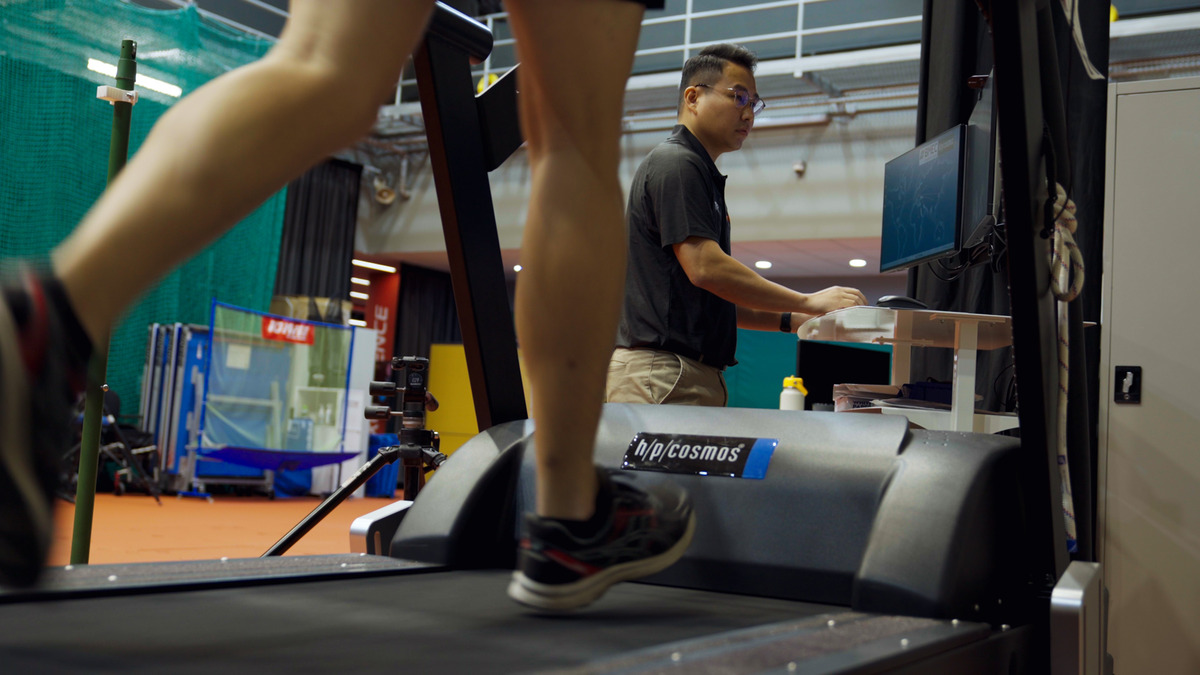For many Singaporeans who caught the Olympics at home, watching athletes test their limits on a global stage is simply a sight to behold.
As he scrubs through recorded footage of the games, 39-year-old Ivan Ee sees these athletes like a "puzzle" — every stroke of the hand, stride in the step, could clue him in on where to adjust their performance. In his profession as a sport biomechanist with Sport Singapore, Ivan works with some of Team Singapore's swimmers to strengthen high performance sports with science.
It was the 2020 Tokyo Olympics when Ivan was presented a golden opportunity. For the first time, the Olympic Games had included a women's 1,500m freestyle event. A campaign was put together to secure a junior swim athlete's qualification, with Ivan being brought into the task force as a sport biomechanist.
Biomechanics at the centre of the task force

A sport biomechanist analyses and assesses the competition to identify areas for the athlete's improvement. After this step, they will then communicate with the respective sport scientists or disciplines to facilitate collaborative efforts and develop integrated solutions.
Sitting at the heart of the task force's operations, Ivan begins by analysing the swimmer's performance. Following his initial assessment, a multi-disciplinary team of sports scientists then join in on the efforts, each contributing their expertise to support the swimmer based on their respective fields. To illustrate, if Ivan identifies that a swimmer's stroke mechanics can be improved, he will then work alongside a strength and conditioning coach to identify and build the muscles required to execute those movements.
Further down the line, he might engage with the psychology team to do a visualisation of the strokes in preparation for the athlete to execute the movements.
This integration is vital for holistic development, as Ivan remarks: "It takes a village to support an athlete."
The experience was extremely refreshing for Ivan. While the field of sport science was not new to sports teams in China or Japan, Team Singapore had been limited to a small ratio of scientists relative to athletes. The fact that a task force could be assembled to help place a junior athlete signalled a promising juncture in the field.
Efforts towards a more integrated sport ecosystem can be seen culminating in recent announcements at the National Day Rally on the Kallang Alive Master Plan. This includes a new Home of Team Singapore (HTSG) facility that will be built within the Kallang Alive precinct, which will feature not only world-class training facilities for our athletes but also an expanded sport science and sport medicine facilities centre to give our athletes a competitive advantage.
Mastering the concepts

So, how did Ivan mark his start in this career? A profound interest in track and field since childhood saw him making a "natural decision" to pursue a sport science degree in the University of Western Australia.
"I wanted to learn more about running mechanics, and hopefully be able to help other athletes achieve their sporting goals," Ivan shared.
Upon graduation, Ivan's vast knowledge in the field of sport sciences placed him in the Institute of Technical Education (ITE), where he served as a lecturer sharing his passion with young minds. He then went on to do a Master's in Exercise and Sport Studies in Nanyang Technological University.
Practising with 'puzzles'

But it wasn't until he joined the National Youth Sports Institute (NYSI) that his theories could finally be put into practice. There, he worked closely alongside junior athletes to provide them with support and advice in their training.
Dubbing himself a problem-solver and the athletes a puzzle - each one brings their own unique challenges, with no one-size-fit-all solution. There never a dull moment at work for Ivan.
"That's the fun of it, because there's no one intervention for everyone, so you always have to come up with very creative ways of interventions based on journals of research and data analytics," he said.
He completed his Master's programme during an eight-year tenure at NYSI and continued spreading knowledge in the field as he concurrently taught sport biomechanics at the Singapore University of Social Sciences (SUSS).
A heart for mentorship

As Ivan progressed in his career, ascending to his current role with Sport Singapore, so did the athletes that came under his wing. This includes national swimmer Mikkel Lee, whom Ivan had been introduced to during his time at NYSI.
"I remember the days when I would actually bring my cameras down to his training pool to video footage and give him immediate feedback of this technique," Ivan recounted. Mikkel is now a national swimmer with multiple medals from the SEA Games.
Working together on the recent Singapore National Swimming Championships (SNSC), Ivan reviewed his past races to create solutions, eventually leading the swimmer to break his personal best and finish in first place during the 50m freestyle competition.
The ability to make a difference in high performance sport is something Ivan holds close to his heart.
What makes a great sport biomechanist

While being a sport biomechanist is a scientific practice, Ivan reckons that it takes more than just giving information to the athletes to be effective in his role.
"Sometimes you need to speak their language in a way that resonates with them. Break down complex biomechanic terms into simple terms for them to digest, understand, and most importantly, help them to relate information to their actual swim."
And while he won't compete in the games in the physical sense, he bears a motivating visualisation: "I see myself as an athlete in the domain of sports science, where I'm competing with other sport scientists around the world, trying to come up with an effective solution for our athletes."
[[nid:699715]]
This article is brought to you in partnership with Ministry of Culture, Community & Youth.

